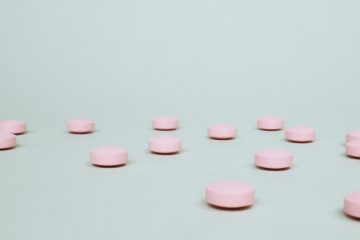
Why do you sneeze when you are feeling unwell?
Sneezing can be caused by almost anything that irritates the nose. Sneezing (also called sternutation) is often triggered by dust particles, animal dander and pollen.
Sneezing is also a good way to get rid of germs that can cause irritation in your nasal passages.
Sneezing, like blinking or breathing is a semiautonomous reaction. You can control it.
It’s possible to stop your sneeze from happening, but it is difficult. We’ll show you how to do it.
Know your triggers. You can then treat your sneezing according to the cause. What causes you to sneeze?
Common triggers include:
- dust
- pollen
- Mold
- pet dander
- Bright lights
- You can also buy perfume
- Spicy foods
- Black pepper
- Common cold viruses
Your doctor can order a test if you suspect that your sneezing may be caused by allergies.
1. Allergies can be treated
Allergy sufferers often sneeze three to four times in a row. Keep track of where and when you sneeze most.
Seasonal allergy is very common. Mold or pet dander can cause allergies in a particular place.
You may only need to take an OTC antihistamine tablet or nasal spray daily to manage your symptoms. OTC antihistamines include the following:
- cetirizine (Zyrtec)
- Fexofenadine, also known as Allegra (fexofenadine),
- Loratadine, also known as Alavert (Claritin)
Fluticasone (Flonase), triamcinolone acetonide, and fluticasone (Nasacort) are two of the glucocorticosteroid nasal sprays that can be purchased over-the-counter.
Your doctor might prescribe medication that is more affordable, depending on the insurance plan you have.
2. Protect yourself from environmental hazards
Some occupations have a higher risk of exposure to airborne irritants. Many job sites have dust that can be inhaled and cause irritation to the nose, sinuses and lungs.
Dust from organic and inorganic sources, such as:
- Chemicals, including herbicides and pesticides
- Cement
- Coal
- asbestos
- Metals
- Wood
- poultry
- Grain and flour
These irritants over time can cause cancers in the lungs, nose, throat and lung. They may also lead to other respiratory issues. Wear protective gear such as a respirator or mask when you are working with inhalable dust.
You can also avoid inhaling harmful dust by reducing the amount of exposure to dust by preventing its formation or using a ventilation system that removes dust particles.
3. Do not look at the light
About a third of people sneeze at bright lights. Some people sneeze even when they step outside on a sunny afternoon.
This condition is often found in families.
Wear polarized sunglasses to protect your eyes and wear them before you leave home!
4. Eat less
Some people sneeze after eating large meals. The medical community doesn’t understand this condition.
It was named snatiation by a researcher, which is a combination between the words “sneeze”, and “satiation”, (feeling full). The name stuck.
Chew slowly and eat small meals to avoid snatiation.
5. Say “pickles”
Many people believe that saying a strange word just before you sneeze will distract you.
This tip’s evidence is anecdotal. Just before you sneeze say “pickles”.
6. Blow your nose
Irritations in the nose and sinuses cause sneezing. If you are about to sneeze and feel the urge, blow your nose.
It is possible to deactivate your sneeze reflex by blowing out the irritating substance. Keep a travel pack or a box with soft tissues and lotion in your bag.
7. Pinch your nose
Another way to try and stop a sneeze before it occurs is by pinching your nose at the nostrils. Try pinching the nose just above your nostrils when you start to sneeze, as you would if you smelled something bad.
Try pinching the top of your nose, just beneath the inner corner of your eyebrows.
8. Use your tongue
It is possible to stop a sneeze if you tickle the roof of your lips with your tongue. The urge to sneeze will likely subside after 5 to 10 seconds.
A second method is to press your tongue against your front teeth hard until the urge for a sneeze has passed.
9. Consider allergy shots
An allergist may recommend immunotherapy for people who have severe allergies or sneezing.
The allergen is injected into the body in a very small quantity. You can develop a greater resistance to an allergen after receiving several shots.
The bottom line
Sneezing, one of the body’s natural defense mechanisms, is a common occurrence. Sneezing helps to prevent irritants getting into your respiratory system where they could cause serious problems.
Some people are more sensitive than others to irritations.
Don’t worry if you sneeze too much. Although it’s not a serious symptom, it can be irritating.
You don’t always need to take medications. Certain lifestyle changes can help you prevent sneezing. You can also try a few tricks to stop the sneeze.
What Is NAD Supplement and How Does It Work?
August 8, 2025Outie Belly Button: Causes and Treatments
August 8, 2025Magnesium Spray Benefits: What You Need to Know
August 8, 2025
Leave a reply Cancel reply
You must be logged in to post a comment.
-
AST Blood Test Low: Common Reasons and Insights
August 7, 2025 -
Anastasia tinted brow gel
October 2, 2023 -
Triamcinolone Acetonide Cream: Uses and Side Effects
August 7, 2025





